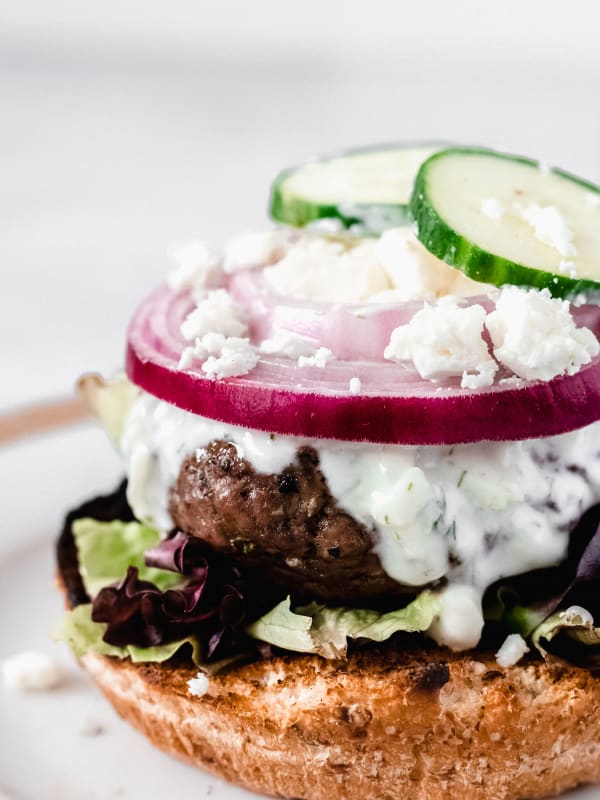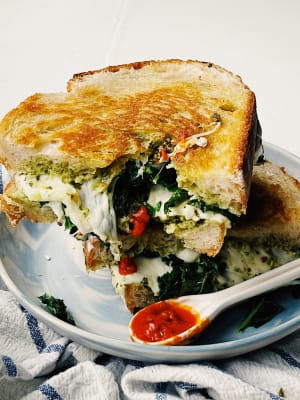Serotonin & Carbs: The Uncomfortable Truth About Comfort Food

Serotonin & Carbs: The Uncomfortable Truth About Comfort Food
Exploring the intricate relationship between food, emotions, and well-being.
The iconic scene of friends gathering around a kitchen table, each armed with a spoon and a tub of ice cream, to commiserate after a bad breakup is a well-worn sitcom cliche that has transcended television screens and found a place in our own lives. We've all experienced some version of it or witnessed a friend seeking solace in comfort foods like ice cream, fast food, and chicken soup. But what lies at the heart of these cliches, and why do they persist as a universal coping mechanism?
Is it just that these foods are tasty and comforting to our taste buds, distracting us from sadness? Or is there a deeper physiological underpinning to our craving for refined carbohydrates when we want to boost our mood? The answer is unquestionably the latter.
Let's take a closer look.

Serotonin and Insulin
Serotonin is our 'calm and blissful' neurotransmitter. It is rightly known as a happiness chemical our brain produces when things, people, or events make us feel good. As life naturally has its ups and downs, so too will the amount of serotonin we make. But beyond these incidental peaks and valleys, the overall balance of serotonin we have to work with is actually governed by the food we eat.
Insulin is part of the process that helps our brain make serotonin out of tryptophan. For this conversion to happen, tryptophan must first get into the brain by hopping onto a carrier protein and crossing the blood-brain barrier that separates our brain's environment from our general circulation. But this isn't necessarily easy or automatic because other amino acids will compete with tryptophan's ability to pass through that barrier.
Imagine there's a transport bus, and this bus carries amino acid passengers from our general bloodstream into our brain. But there are only so many seats on this bus, and tryptophan has difficulty getting on. To add to the trouble, most protein-rich foods contain much less tryptophan than all the other non-serotonin-related amino acids, so eating more protein just crowds the bus even more. The insulin that appears when we eat carbohydrates (refined or otherwise) essentially saves tryptophan a seat on the bus, allowing it to cross over into brain territory, where it will turn into our calm and blissful neurotransmitter, the happy chemical serotonin.
So, how does this affect eating habits?
When serotonin is in short supply, we will crave comfort foods high in refined carbohydrates to increase its production. And it works! The physiological connection is undeniable. In this sense, eating ice cream can actually help fight off sadness by raising happiness, at least in the short term.

What's the catch?
One might be curious- isn't more serotonin a good thing? Don't we always want as much as we can get? The answer is a definitive no! While it might seem like it's impossible to get too much calm or blissfulness, the truth is that, like so many other things, what we really want is serotonin balance. Serotonin excess will actually diminish the receptors for serotonin in our brain synapses, meaning we can get desensitized to it. Extreme serotonin excess (from combining certain drugs) can even cause a life-threatening condition called serotonin syndrome.
Meanwhile, relying on refined carbohydrates to balance our mood will result in other problems, like encouraging yeast and harmful bacteria to overgrow in our gut (our second brain) and putting us on a blood sugar rollercoaster that imbalances our insulin more long-term. These effects will make it harder for the brain to function optimally. Don't forget our brain is the most glucose-hungry organ in the entire body, and it wants a stable supply of blood sugar and insulin to thrive. Our gut-brain axis, just like our sugar metabolism, is also directly implicated in our mood balance.
Practically, eating lots of sugar and refined starch will lead to imbalances in serotonin, insulin, and friendly gut flora, setting us up for more cravings in the future.
So, what do we do instead?
It follows that a tremendous foundational strategy for balancing our serotonin, in the long run, is to balance our insulin and eat a variety of high-quality proteins, especially those rich in tryptophan. Getting lots of daytime sunlight, exercising, meditating, socializing, optimizing sleep and enjoying probiotic foods will round out a holistic strategy to naturally boost serotonin and balance moods. If we can check most or all of these boxes, we might not find ourselves craving comfort foods at all - even when life hands us lemons that we just can't seem to turn into lemonade.
Choi, S., Disilvio, B., Fernstrom, M. H., & Fernstrom, J. D. (2009). Meal ingestion, amino acids and brain neurotransmitters: effects of dietary protein source on serotonin and catecholamine synthesis rates. Physiology & behavior, 98(1-2), 156–162. https://doi.org/10.1016/j.physbeh.2009.05.004
Wurtman, R. J., & Wurtman, J. J. (1988). Do carbohydrates affect food intake via neurotransmitter activity?. Appetite, 11 Suppl 1, 42–47.
Wurtman, R. J., & Wurtman, J. J. (1995). Brain serotonin, carbohydrate-craving, obesity and depression. Obesity research, 3 Suppl 4, 477S–480S. https://doi.org/10.1002/j.1550-8528.1995.tb00215.x





